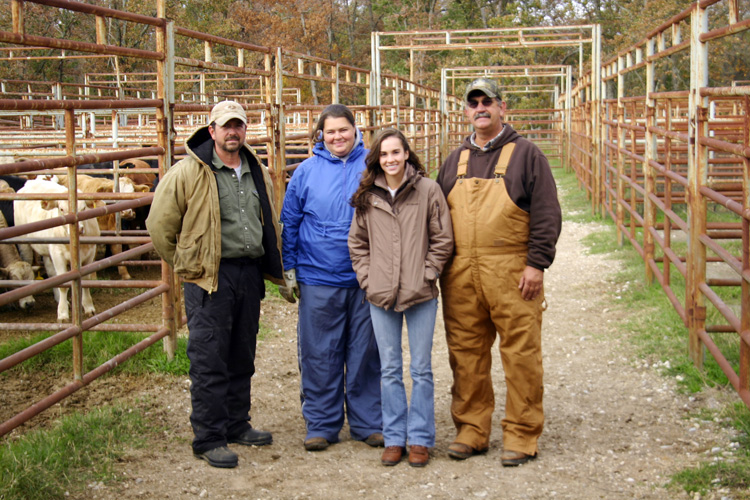
FAYETTEVILLE, Ark. – Claire Crews is hoping an extensive research project on the respiratory disease of stocker calves leads to a future career in veterinary medicine.
For Crews, a senior animal science major with a pre-vet concentration in the Bumpers College of Agricultural, Food and Life Sciences at the University of Arkansas, the work begins early and the days are anything but typical.
She works at the university's stocker-receiving unit at Savoy Farm, located approximately 12 miles from campus. She arrives at 8 a.m. to begin observing stocker calves for signs of respiratory illness.
Calves exhibiting signs are pulled from the group and those requiring treatment are administered one of two antibiotic treatment options. Blood samples are taken 48 hours after the calves are treated.
After her work at the farm, Crews drives to campus and runs the samples through a hematology machine, a device that evaluates the complete blood count of the sample. The blood samples are used to determine the efficacy of the treatments administered.
The study will be used to develop effective methods for the future treatment of bovine respiratory disease (BRD), also known as "shipping fever." BRD occurs like pneumonia in cattle.
Crews said the purpose behind the research is to determine the efficacy of one treatment option versus an alternate used by those who raise stocker calves and treat BRD. The first treatment option includes an injection with supplemental therapy. The second treatment option includes only the injection.
The results will prove beneficial to the bovine community, and for the education of techniques and treatment plans for respiratory disease in stocker calves.
The project opportunity and its completion will also open doors and further research opportunities for students, like Crews, interested in taking a veterinary career path. She plans to attend veterinary school after earning her bachelor's in animal science. After earning her Doctor of Veterinary Medicine degree, she hopes to work as a private practitioner in addition to doing veterinary mission work.
"I wanted to pursue a research topic that dealt with cattle so that I could become more knowledgeable about husbandry practices, handling techniques and veterinary practices which would aid me in my pursuit of becoming a veterinarian," said Crews. "Prior to conducting research with stocker calves, I had very little experience handling cattle."
Crews has conducted research on stocker calves under her mentor, Jeremy Powell, an animal science professor and licensed veterinarian.
"Regardless of how busy he is, he always welcomes me into his office when I have questions or concerns about my study," said Crews.
Contacts
Kayla Cherry, student, agricultural reporting & feature writing
Bumpers College
479-366-8200,